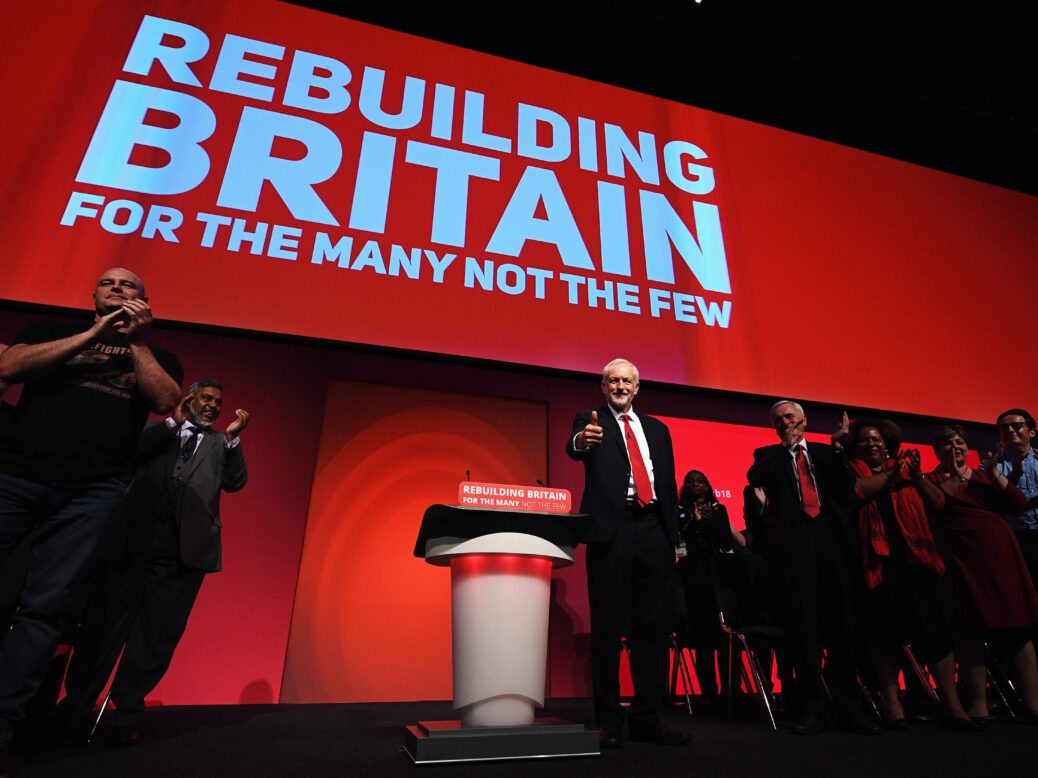
In his speech to conference yesterday, Keir Starmer confirmed what has long been assumed and said that Labour would vote down Theresa May’s Brexit deal when it came before parliament. In the hours that followed, Jacob Rees-Mogg’s 80-strong European Research Group confirmed that, unless the prime minister changed course, they would too – effectively ending the chances of any deal passing the Commons.
But could Theresa May pass a deal with Labour support after all? Addressing conference this afternoon, Jeremy Corbyn outlined the circumstances in which he would support a Tory Brexit deal.
Let me also reach out to the Prime Minister, who is currently doing the negotiating.
Brexit is about the future of our country and our vital interests. It is not about leadership squabbles or parliamentary posturing. If you deliver a deal that includes a customs union and no hard border in Ireland, if you protect jobs, people’s rights at work and environmental and consumer standards – then we will support that sensible deal. A deal that would be backed by most of the business world and trade unions too.
But if you can’t negotiate that deal then you need to make way for a party that can.
The conditions are similar – but not identical – to the six tests which Labour has used to determine that it will vote against May’s deal: ensuring a “strong and collaborative” future relationship with Brussels, delivering the “exact same benefits” of the single market and customs union, ensuring fair management of migration, defending workers rights and consumer protections, protecting national security, and delivering benefits across for the nations and regions.
If that bar sounds too high, that’s because it is: that the tests are unpassable is essentially their point. The same is true of the additional tests set by Corbyn today. There is no way May could pursue membership of a customs union without splitting the Conservative Party and ending up as the Tory Ramsay MacDonald. Brexiteers have reacted angrily to suggestions that Tory whips were hoping to pass a deal with opposition votes in the past.
The Labour leadership know all of this, and their positioning must be seen in that context. Nor, as their repeated demands for a general election underline, do they want to keep an ailing government in office, which approving its Brexit deal would do.
It has nonetheless been interpreted by some as a come-and-get-me-plea. George Osborne’s Evening Standard splashes on “Corbyn Offers May Deal On Brexit”. But those working in the leader’s office and within its Brexit team disagree. “The point of setting tests is you don’t look like a wrecker,” says a source close to Corbyn. Unless something radically changes, Theresa May is likely to fail them – and Labour is just as likely to vote against her.





